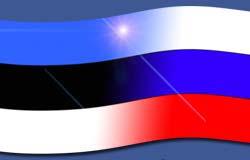 It is safe to say that the blog scene reflecting "Eastern European" events is quite limited as compared to "hotter" regions such as the Middle East. True to its ambition of commenting and promoting quality blogs, Global voices makes efforts to introduce its readers to most aspects of the blogosphere and also to Eastern Europe, Russia, Caucasus & Central Asia. As for the many country-specific blogs on "Eastern Europe," there is, however, little information to be found. Therefore, I here try to account for Swedish blogs on the region.
It is safe to say that the blog scene reflecting "Eastern European" events is quite limited as compared to "hotter" regions such as the Middle East. True to its ambition of commenting and promoting quality blogs, Global voices makes efforts to introduce its readers to most aspects of the blogosphere and also to Eastern Europe, Russia, Caucasus & Central Asia. As for the many country-specific blogs on "Eastern Europe," there is, however, little information to be found. Therefore, I here try to account for Swedish blogs on the region. One of the most frequently visited blogs is Tobias Ljungvall on Belarus. Ljungvall, a liberal with a deep commitment to freedom and democracy in Belarus, here makes his "observations of political developments in and around the Republic of Belarus." The blog also advertises Ljungvall's book Kontoll - Rapport från Vitryssland (Control - Report from Belarus). The blog is updated every Sunday. Needless to say, Ljungvall is not welcome any longer in Belarus under the current Lukashenka regime. All the same, he is probably one of the most well-informed people in Sweden on the situation in Belarus.
Allt om Georgien (in Swedish) is an anonymous blog dedicated to tell "all about Georgia" - as its title indicates - to a Swedish audience. It thus informs about, comments on, and promotes current events in Georgia, and things related to Georgia in Sweden. As for its anonymity, it is no hard guess that Göran Dalin and his lovely Georgian wife Ekaterine are behind this blog. The couple seems to have formed the hub of Georgian community in Sweden during recent years - correct me if I am wrong - and this, I believe, is just another of their ventures. As for contents, the love and devotion to Georgia is quite apparent in the blog.
I think many of us may recognise familiar things and phenomena on Camilla Bondareva's blog Ad notam (in Swedish). She writes and reflects on everyday life in St. Petersburg and Russia, and many of her texts are illustrated by her own photos. Bondareva is a free-lance communication manager. In addition to the texts, the general layout and impression of the blog is very nice.
A Swedish expat in Tajikistan - Erik Petersson - actually has two photo blogs on the region. The reason is simple - he started up in Moscow and then moved on to Dushanbe. The Moscow blog (in Swedish) - Samtidigt, i Moskva - depicts Moscow life with Petersson's own pictures and accompanying comments. His Tajikistan blog (in English) - Dushanbe pictures - is so far simply a photo blog with few comments. The pictures themselves may, however, need no further comment. Some of the black-and-white pictures bear the hallmarks of a professional photographer.
Wictoria Majby - a Swedish Institute teacher in Murmansk - runs the blog Ryska Rövarhistorier (in Swedish). Its Swedish title means "Russian cock-and-bull stories" and that is perhaps more of an ironic ambition than reality. Majby simply writes and reflects on various phenomena of her daily life and chores as a foreigner in the Russian north. Those of us who know her, will find her frequent comments well in tune with her vibrant personality.
A UN intern in Abkhazia - Carl Gustaf Erixon - tells about his experiences during out-of-service time on CG Bloggin' (in Swedish). The blog mainly features his reflections from this conflict-ridden part of Georgia. He also runs a photo blog - cgerixon's photos - to post pictures, which there is not enough space for on his regular blog.
Then there is Fredrik Nejman's Ukraina-blogg (in Swedish), which forms part of the Swedish Union of Journalists' website. The aim of Nejman's blog is to inform about the union's ongoing cooperation with the Ukrainian journalist trade union. As such, it is somewhat particular to the ongoing project, but that is also its purpose and aim.
Under the pseudonym of "Annabengan," a Swedish woman serving with the IOM in Albania tells us about her experiences there and elsewhere on her blog Annasblog (part Swedish - part English). She is careful to point out that: "Everything on this website is purely my own thoughts and in no way reflects the policies or thoughts of the organization I'm working for."
Finally, there are a couple of blogs that are not specifically dedicated to "Eastern Europe" but where one might regularly find comments on the region. First, there is Andreas's blog, (part English - part Swedish) by Swedish liberal Andreas Ribbefjord. Last, but not least, mention must be made of former Swedish Prime Minister's, Carl Bildt, blog - Bildt comments. With his great interest in international affairs, liberal-conservative Bildt every once in a while writes something about Russia and other parts of "Eastern Europe." It may often be worthwhile to read his blogs on these issues.
As may have been gathered by now, the Swedish blogosphere on "Eastern Europe" is limited. This is somewhat strange, as there is quite a lot of people in Sweden with an interest in the region. It has apparently so far not resulted in any greater urge to blog on issues related to "Eastern Europe." A question, however, lingers on: Have I missed something? Is this really the case?
















































